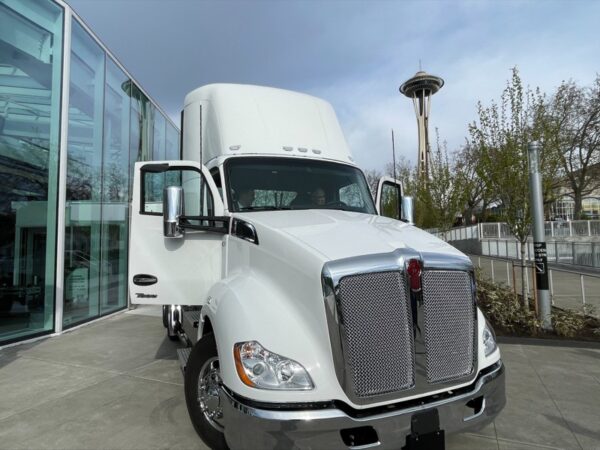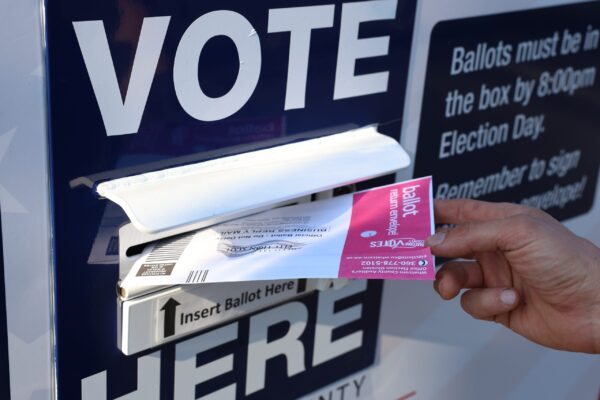In a unanimous decision, Court recognizes State’s authority to manage forestlands for public benefit
OLYMPIA, WA—Today, the Washington State Supreme Court confirms that the state has a constitutional mandate and broad authority to serve “all the people” of Washington and the public interest when managing state lands. This unanimous decision in the case of Conservation Northwest, et al. v. Commissioner of Public Lands, et al., recognizes that the Department of Natural Resources (DNR) can integrate the many diverse public benefits of forests into the management of state forestlands, beyond maximizing revenue generation from timber harvests.
DNR has historically managed forestlands in ways that maximize revenue from logging, even at the expense of other public interests and benefits. This decision recognizes that the agency, Commissioner of Public Lands, Board of Natural Resources, and State of Washington have the power to manage public lands in ways that truly reflect and support our state’s evolving environmental, economic, and social needs.
The court’s decision states that DNR’s need to serve identified beneficiaries and DNR’s requirement under the State constitution to serve the public interest “should be construed in harmony.” As the Court explained, “[t]here appear to be myriad ways DNR could choose to generate revenue from the state and forest board lands or otherwise put them to use for the benefit of the enumerated beneficiaries.” (page 23)
The court also states that DNR is not required to generate revenue specifically from timber harvests on state lands, but may elect to do so because of their discretion as trust managers. The agency is also not required to prioritize revenue maximization in their land management (page 25, “Conclusion”).
“The battle we’ve been fighting is to achieve a fair balance. We have argued that the management of these lands has historically been pushed to maximize revenue. We have never fought to end all timber harvest on state lands,” said Peter Goldman, Director, Washington Forest Law Center and co-counsel for plaintiffs,“This decision confirms instead that the agency, Commissioner of Public Lands, Board of Natural Resources, and State of Washington does not have to maximize timber harvest or revenue generation, and have broad discretion to balance revenue generation for identified beneficiaries with management for the broader public interest. DNR and the Legislature now can design 21st Century forest management that meets the challenges we face today.”
Environmental organizations Conservation Northwest, Washington Environmental Council, and Olympic Forest Coalition, as well as eight community members, brought forth the lawsuit arguing that the state constitution requires that the federally-granted public forestlands managed by the state Department of Natural Resources (DNR) are “held in trust for all the people.” There are approximately 2 million acres of “state trust lands” that were granted to the state by the federal government upon statehood, including almost 1.5 million acres that are forested.
“The court issued a monumental conservation ruling. Over coming years and decades, this ruling will be cited in support of nature-protection policies made by the legislature and the DNR. In short, the nature of this trust is that the state has the discretion to protect the public’s resources,” said Mitch Friedman, Executive Director of Conservation Northwest.
“We are encouraged to see that the Washington State Supreme Court has recognized the power and broad discretion the State has to manage public lands for the benefit of all the people, and not just for maximum timber revenue. Our state’s forests provide immense benefits to all of us–people, trees, animals, and our futures. Washingtonians should not be forced to choose between harvesting timber for funding and having healthy forests to protect our air, water, habitat, and public health,” said Alyssa Macy, CEO of Washington Environmental Council and Washington Conservation Voters. “This decision opens the door for the Department of Natural Resources to manage our public lands toward a healthy, equitable future for generations to come.”
“We are now seeing unprecedented changes in our state forests, habitats, and watersheds from climate disruption”, said Connie Gallant, President of the Olympic Forest Coalition, “We can no longer afford to mine our forests only for short term revenues, assuming without scientific evidence that they will continue to grow back indefinitely. We simply cannot blindly sacrifice the environment any more. The Court recognized that DNR and the Legislature must balance the interests of all the people, not only maximize revenue from timber harvests. This case has clearly put the responsibility on the Commissioner of Public Lands and the Legislature to resolve the policy differences, balance our interests and find a clear path forward. DNR has the discretion – their hands are no longer tied. We can manage for carbon, for science, for revenues, for all our interests. We literally have some of the most important forests in the world to either mitigate climate disruption or add to it. We shall see if the Commissioner of Public Lands and our elected officials take up the baton the Washington Supreme Court has passed to them and protect these forests.”
Article 16, Section 1 of the Washington State Constitution states “all the public lands granted to the state are held in trust for all the people.” Conservation NW et al. v. Commissioner of Public Lands et al. asked the court to interpret this constitutional language to require that the agency must consider both generating revenue and the multitude of other ecological benefits of state forestlands.
Upon Washington’s statehood in 1889, the federal government granted Washington 3 million acres of land through the Enabling Act to be held for the public and to support public institutions, including K-12 school construction and state universities. The Board of Natural Resources (BNR) sets policies for management of state trust lands, and management is carried out by the Department of Natural Resources (DNR).
The environmental organizations and individuals in this case were represented by the Ziontz Chestnut law firm and the Washington Forest Law Center.
###
“Keeping the Northwest wild” since 1989, Conservation Northwest is a regional non-profit organization that protects, connects and restores wildlands and wildlife from the Washington Coast to the British Columbia Rockies. Staff operate in local communities and rural areas around Washington and into southern B.C., using dialogue to find common ground and collaborative solutions for challenging issues including habitat corridors, wilderness conservation, forest restoration and endangered species recovery.
The Olympic Forest Coalition (OFCO) promotes the protection, conservation and restoration of natural forest ecosystems and their processes on the Olympic Peninsula. This mission includes monitoring and caring for the public forests, watersheds and bays of the Peninsula. OFCO’s approach integrates science-based solutions that protect and restore natural ecosystems, threatened and endangered species, and healthy rural communities. OFCO incorporates the climate crisis and mitigating its impacts on the Olympic Peninsula as foundational for all of its work.
Washington Environmental Council is a nonprofit, statewide advocacy organization that has been driving positive change to solve Washington’s most critical environmental challenges since 1967. Our mission is to develop, advocate, and defend policies that ensure environmental progress and justice by centering and amplifying the voices of the most impacted communities.
MEDIA CONTACT:
Zachary Pullin, Washington Environmental Council, 206-631-2629



